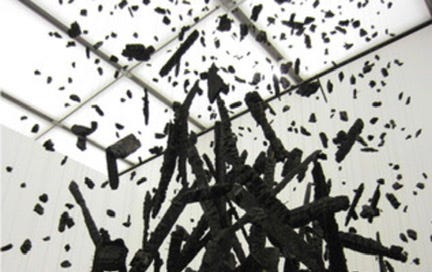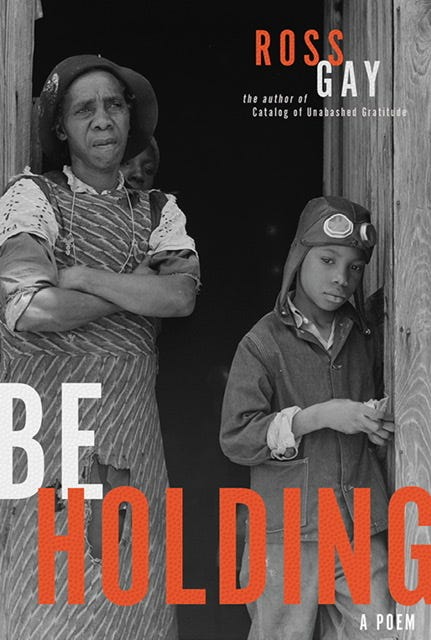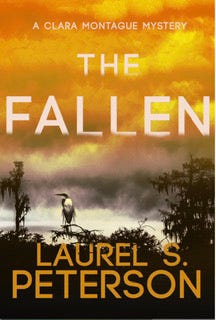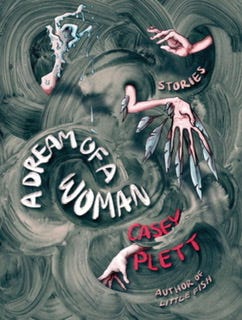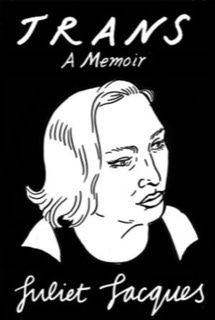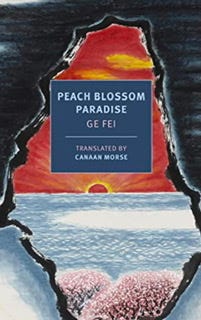I was inspired to get a copy of In the Wake: On Blackness and Being by Christina Sharpe (Duke University Press, 2016) after listening to what both Natalie Diaz and Ross Gay had to say about it on the Between the Covers podcast with David Naimon (that show is a treasure — don’t miss it). Reading Ross Gay’s book Be Holding, which engages with Sharpe’s ideas directly, is what made me pick it up.
It’s very much what you would expect from an academic book in some ways, with lengthy endnotes, close readings, and an academic prose style (in some places a little dense, in a scholarly tone, and formal). But it also has a personal introduction and a sense of urgency throughout that you don’t always find in academic writing. This is a book that feels necessary and also generative: it works with ideas and metaphors that have lingered in my mind and that are clearly lingering the mind of writers who have read it.
In the Wake looks at Black life in the aftermath of slavery as it persists today. It analyzes films, photos, and literature for the ways they grapple, or refuse to grapple, with this aftermath. It’s also a call to live “in the wake,” to live fully in the knowledge that slavery and its effects are with us, shaping everything. It is not a finished event. Sharpe’s chapters look at “the wake,” “the ship,” “the hold,” and “the weather” in their various meanings, literal and metaphorical, meanings that evoke the slave ships of the Middle Passage. Each of these words is a nexus of complex, contradictory meanings that embody the fraught status of Black lives, not just in the U.S., but in many places around the world.
The “wake” is “the track left on the water’s surface by a ship; the disturbance caused by a body swimming or moved, in water; it is the air currents behind a body in flight; a region of disturbed flow.” The word evokes the literal wake of a slave ship and, metaphorically, life after slavery, symbolized by that ship. It also evokes death and the ceremony held before a funeral, as well as the idea of waking up to consciousness.
The “hold” refers to a ship’s hold, the place where enslaved people were trapped and where many died. In a section called “The Belly of the Ship,” Sharpe explores the hold as a place of death but also as a womblike space, and from there she contemplates the charged cultural meanings of the Black womb, and of Black mothers and children. To hold can be to trap, but it can also be to care for and comfort. To “behold” is to see, to acknowledge. To live in the wake is to live inside these contradictions, to see how one’s life is shaped by them.
The “weather” evokes the atmosphere — mood — of the slave ship and also the lack of fresh air in the hold, a lack which reaches beyond the slave ship as far as Eric Garner’s “I can’t breathe.” It is also the persistent, all-encompassing atmosphere of anti-Blackness. Here, Sharpe looks not only at this climate that is so pervasive it can be hard to see and feel, but also at ways Black artists are rewriting, remaking, and resisting this climate. She talks about aspiration — breathing life into the Black body — annotation, and redaction as forms of resistance.
Throughout, Sharpe discusses writers Dionne Brand, NourbeSe Philip, Toni Morrison, and others, as well as images of refugees, ships, and works of art for how these words and ideas appear. I found her discussions of photographs particularly moving: Sharpe analyzes these photos with both rigor and care.
The book is also interested in how to move forward. Speaking to Black people who “live in the knowledge that the wake has positioned us as no-citizen,” she writes,
If we are lucky, the knowledge of this positioning avails us particular ways of re/seeing, re/inhabiting, and re/imagining the world. And we might use these ways of being in the wake in our responses to terror and the varied and various ways that our Black lives are lived under occupation.
She calls this “wake work,” the idea that “we might continue to imagine new ways to live in the wake of slavery, in slavery’s afterlives, to survive (and more) in the afterlife of property.” She hopes that her analyses embody this idea and that she inspires others to do that work as well.
This framework provides a beautiful way to think about Ross Gay’s book-length poem Be Holding. I wrote about this book last summer, so I won’t get deeply into it here, but Gay has talked about how In the Wake gave him a way to end the poem, a work that begins with basketball but moves in many directions, including into images from the Middle Passage. He talks about how it helped him figure out how to move from the idea of “the hold” to “beholding” to “beholden.” The word “hold” can take a person from terror to looking and on to care, community, and mutual obligation. He found a form of “hold” that spites the hold: a holding and being beholden that works against the horrors of the slave ship. As he says in the podcast interview:
I think maybe, one of the imaginings is that there is this one hold which is like the horrible genesis of the conditions of our lives among others and there’s another holding that is constantly being made. Maybe, part of the practice that I’m imagining—and when I say imagining, I’m joining with other imagineers obviously—is this other hold actually, this other hold which is another vessel, which is another generative possibility, which is actually right now, this is the moment, we’re in another one.
These two books are beautiful and work beautifully together; I highly recommend reading them as a pair. Both books will likely send you to other books after that; Sharpe’s literary analyses and Gay’s lengthy acknowledgements section are full of books and authors you will want to read if you haven’t yet. They make for a reading experience that is both challenging and inspiring.
Publishing This Week
New small-press books out this week that I haven’t yet read and am adding to my TBR. All quotations below are from the publisher:
The Fallen by Laurel Peterson (Woodhall Press): my friend Laurel has a book out today! The Fallen is the second in the Clara Montague mystery series, which begins with Shadow Notes. Shadow Notes was great, and I can’t wait for this new installment.
Milk Teeth by Helene Bukowski, translated by Jennifer Calleja (Unnamed Press): “Climate fiction from Germany about motherhood and longing for a better world.”
The Wrong End of the Telescope by Rabih Alameddine (Grove Press): A novel about “an Arab American trans woman's journey among Syrian refugees on Lesbos island.”
Yellow Rain: Poems by Mai Der Vang (Graywolf): A poetry collection that is “a reinvestigation of chemical biological weapons dropped on the Hmong people in the fallout of the Vietnam War.”
The Price of the Ticket: Collected Nonfiction, 1948-1985 by James Baldwin (Beacon Press): “An essential compendium of James Baldwin's most powerful nonfiction work, calling on us ‘to end the racial nightmare, and achieve our country.’”
A Dream of a Woman by Casey Plett (Arsenal Pulp Press): A short story collection that centers “transgender women seeking stable, adult lives.”
Last Words on Earth by Javier Serena, translated by Katie Whittemore (Open Letter): “An exploration of the excruciating travails and sudden, immeasurable success of a Roberto Bolaño-esque writer.”
New on the TBR
New books acquired:
Taking a Long Look: Essays on Culture, Literature and Feminism in Our Time by Vivian Gornick (Verso, 2021): Vivian Gornick’s nonfiction is reliably good. This book collects writing from over the course of her career.
Tomorrow Sex Will Be Good Again: Women and Desire in the Age of Consent by Katherine Angel (Verso, 2021): I’ve been meaning to read Angel’s book Unmastered for ages. It makes no sense to pick up another book by an author I haven’t read yet, but Verso has a sale, and here we are.
Trans: A Memoir by Juliet Jacques (Verso, 2015): Another Verso book! This is a memoir and an examination of transgender politics.
Stay and Fight by Madeline Ffitch (Picador, 2020): This book and the next one are from the Pilsen Community Books Bread and Roses subscription. “Set in a region known for its independent spirit, Stay and Fight shakes up what it means to be a family, to live well, to make peace with nature and make deals with the system.”
How to Blow Up a Pipeline by Andreas Malm (Verso, 2021): “In this lyrical manifesto, noted climate scholar (and saboteur of SUV tires and coal mines) Andreas Malm makes an impassioned call for the climate movement to escalate its tactics in the face of ecological collapse.”
The National Book Award Longlist for Translated Literature came out last week! These books are ones from that list I’ve added to my TBR:
Waiting for the Waters to Rise by Maryse Condé, translated by Richard Philcox (World Editions): “Babakar is an African doctor living alone until the child Anaïs comes into his life. Forced to abandon his solitude, he takes her to Haiti in search of her family.”
Peach Blossom Paradise by Ge Fei, translated by Canaan Morse (NYRB): “Peach Blossom Paradise, set at the time of the reform, is the story of Xiumi, the daughter of a wealthy landowner and former government official who falls prey to insanity and disappears.”
Planet of Clay by Samar Yazbek, translated by Leri Price (World Editions): A novel about Rima, a girl from Damascus, who lives in a fantasy world while destruction happens all around her. Then her mother is killed.
Currently Reading
Coventry: Essays by Rachel Cusk (Picador, 2020): I didn’t get along so well with Cusk’s novel Outline, but it turns out I love her essays. I’m halfway through this book, and it’s kind of brutal. Her insights into gender and family life are sharp and wince-inducing and brilliant.
I’m still making my way through Keats’s Selected Letters (he’s just met Fanny Brawne, and my goodness does this change the tone of his writing!), Michelle Zauner’s Crying in H Mart on audio (I’m a little disappointed as it’s a mostly conventional memoir and I’m feeling tired of those these days), and Rachel Long’s My Darling From the Lions, my current poetry collection (I think it’s okay, but it’s not going to be a favorite).
The Cormac Report
A couple days ago, my husband finished reading The Silmarillion to Cormac in our evening reading sessions. Cormac did well with it! He followed what was happening, more or less, and was able to remember details. I did well with gazing off into the distance daydreaming during the whole reading, and I can tell you very little about it.
Now they are on to The Adventures of Tom Bombadil, another book in the Tolkien universe. This book, it turns out, is poetry. It’s the kind of poetry that has regular rhyme and meter, so while I’m still not paying attention to the meaning of the words, I find myself tapping along to the rhythm. I guess this is okay? It remains to be seen how Cormac will like it, but the book reads quickly and isn’t terribly long, so my husband will probably read the whole thing. I have no idea how far into the Tolkien universe they will get, but Cormac can be remarkably stubborn/persistent about finishing things, so there may be more Tolkien books after this, or possibly some rereading, which means I will have plenty of time left for daydreaming.
Have a good week everyone!

